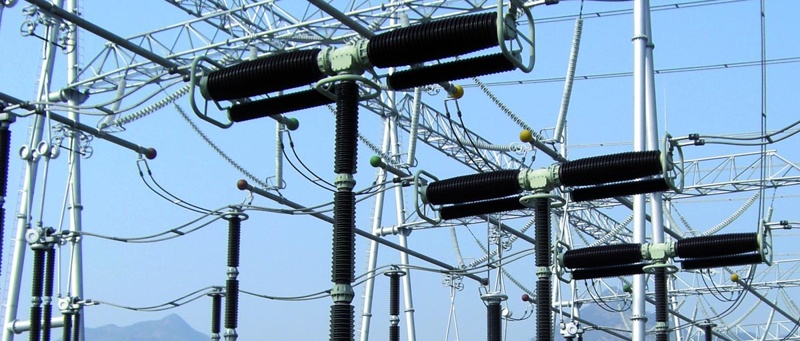Industrial Electrical Services
Industrial electrical services are critical to the smooth and efficient operation of manufacturing and industrial facilities. These services encompass a wide range of activities, from the design and installation of electrical systems to maintenance and repair. Their role is essential in ensuring that industrial processes are reliable, safe, and energy-efficient.
1. Importance of Industrial Electrical Services
Industrial electrical systems are the backbone of modern manufacturing and production facilities. They power machinery, lighting, HVAC systems, and other critical infrastructure. Proper management of these systems is crucial for several reasons:
- Safety: Faulty electrical systems can pose significant safety risks, including electrical fires and shocks. Regular maintenance and adherence to safety standards help mitigate these risks.
- Efficiency: Well-maintained electrical systems ensure that machinery operates efficiently, reducing downtime and increasing productivity.
- Compliance: Industrial electrical services ensure that installations meet local and national electrical codes and regulations, avoiding legal issues and penalties.
2. Key Components of Industrial Electrical Services
a. Electrical Design and Engineering
The design phase is crucial for creating a robust electrical system tailored to the specific needs of the industrial facility. This includes:
- Load Calculation: Determining the electrical load requirements for various machines and equipment.
- System Design: Designing circuits, selecting appropriate wiring, and specifying components such as transformers and switchgear.
- Power Distribution: Planning for the efficient distribution of electrical power throughout the facility.
b. Installation Services
Proper installation is vital for ensuring that the electrical system operates safely and efficiently. Installation services typically include:
- Wiring and Cabling: Installing wiring and cabling to connect various electrical components.
- Control Systems: Setting up control panels and automation systems to manage machinery and processes.
- Lighting Systems: Installing industrial lighting systems to ensure proper illumination for safety and productivity.
c. Maintenance and Repair
Ongoing maintenance and repair services are essential for the longevity and efficiency of industrial electrical systems. This includes:
- Routine Inspections: Regular inspections to identify potential issues before they become major problems.
- Preventive Maintenance: Scheduled maintenance tasks such as cleaning, lubrication, and testing to prevent equipment failure.
- Emergency Repairs: Rapid response to electrical failures or faults to minimize downtime and restore operations quickly.
d. Upgrades and Modernization
As technology advances, industrial facilities may need to upgrade their electrical systems to stay competitive. Services in this area include:
- System Upgrades: Replacing outdated components with newer, more efficient technology.
- Energy Efficiency Improvements: Implementing solutions such as energy-efficient lighting and variable frequency drives (VFDs) to reduce energy consumption.
- Automation: Integrating advanced control systems and automation technologies to enhance operational efficiency.
3. Challenges in Industrial Electrical Services
a. Complex Systems
Industrial electrical systems can be highly complex, involving numerous components and intricate wiring. This complexity requires skilled professionals with expertise in various aspects of electrical engineering and maintenance.
b. Safety Concerns
Ensuring safety in industrial environments is paramount. Electrical systems must be designed and maintained to prevent hazards such as electrical fires and shock. Compliance with safety regulations and standards is essential.
c. Downtime and Production Disruption
Unplanned electrical outages can lead to significant downtime and production disruptions. Effective maintenance strategies and rapid response to emergencies are crucial for minimizing the impact of such incidents.
d. Evolving Technologies
With the rapid pace of technological advancement, staying updated with the latest technologies and best practices is a constant challenge. Electrical service providers must continually train their staff and invest in new tools and equipment.
4. Choosing the Right Industrial Electrical Service Provider
When selecting an industrial electrical service provider, consider the following factors:
- Experience and Expertise: Look for providers with a proven track record in handling industrial electrical systems.
- Certifications and Compliance: Ensure that the provider is certified and adheres to industry standards and regulations.
- Service Range: Choose a provider that offers a comprehensive range of services, including design, installation, maintenance, and repair.
- Reputation and Reviews: Check references and reviews to gauge the provider’s reputation and customer satisfaction.
5. Future Trends in Industrial Electrical Services
a. Smart Technologies
The integration of smart technologies and the Internet of Things (IoT) is revolutionizing industrial electrical systems. Smart sensors and monitoring systems provide real-time data, enabling proactive maintenance and enhanced efficiency.
b. Renewable Energy Integration
With the growing emphasis on sustainability, integrating renewable energy sources such as solar panels and wind turbines into industrial electrical systems is becoming more common. This helps reduce reliance on conventional energy sources and lowers operating costs.
c. Advanced Automation
Advancements in automation and control systems are driving improvements in operational efficiency and productivity. Industrial electrical services will increasingly focus on integrating these advanced technologies into existing systems.
Conclusion
Industrial electrical services are a cornerstone of modern industrial operations, ensuring that electrical systems are safe, efficient, and reliable. From design and installation to maintenance and upgrades, these services play a vital role in supporting the needs of manufacturing and production facilities. As technology continues to evolve, the field of industrial electrical services will adapt, embracing new innovations to meet the challenges and opportunities of the future.
